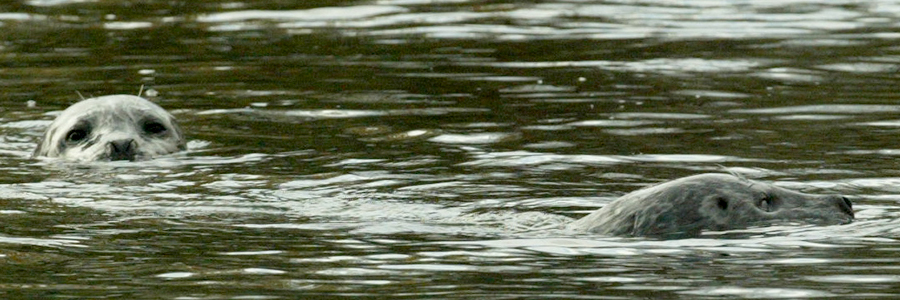Graduate Studies Info
I plan to take 2 graduate students starting academic year 2024-2025.
Thank you very much for your interest in the Marine Mammal Ecology Lab at Western Washington University. The lab receives several inquiries from students interested in conducting graduate work. To provide the best experience for everybody involved, I attempt to take 1-2 students every other year to begin in the fall quarter.
There are two opportunities to conduct research in the Marine Mammal Ecology Lab starting academic year 2024-2025: A) A project on foraging ecology of river otters in collaboration with Adrianne Akmajian of the Makah Tribe and Dr. Dietmar Schwarz of Western Washington University. There is funding through the Makah Tribe to hire the student before starting classes at Western —available beginning April 2024 (latest start date June) through September 2024— based primarily in Neah Bay, WA, and funding for most of the research expenses. Stipend for the academic year will be provided via a Teaching Assistantship. With our help, additional funds will be sought by the student to support a summer stipend during summer 2025 and any additional research funds needed. The project will use molecular techniques and be based on the one previously conducted by Bobbie Buzzell, about which you can learn here and here. B) A project on the molecular ecology of pinniped seal foraging ecology and behavior in collaboration with Dr. Dietmar Schwarz. The student will have the opportunity to develop a new research question building and expanding upon previous work conducted in the Acevedo and Schwarz labs (we encourage you to read our labs' publications and theses) and write research proposals for internal and external funding. Stipend for the academic year will be provided via a Teaching Assistantship.
We are interested in students who are responsible, committed, congenial, and can close the deal (finish their thesis and publish at least one scientific paper). Good communication and quantitative skills and experience with molecular techniques are also valued. If you are interested in being part of the lab, please email me at aceveda@wwu.edu the following information before November 20th of 2023:
- Unofficial copy of undergraduate transcript (a scanned copy is fine).
- Copy of either a curriculum vitae or a resume summarizing your work and academic experience.
- A 1-2 page statement of purpose outlining a) your short- and long-term career goals, b) why you want to be part of this lab, and c) how your experience and qualifications make you a good fit to work with me.
- Names, addresses, telephone, and email of three references, whom we will contact if needed.
During December, we will contact serious applicants (those who email all the information required) to let them know whether we are unable to take them as students or whether we would like to get to know more about them by meeting them in December or early January. We have learned that it is extremely important to meet promising students in person, whenever possible. This contact not only provides us with an opportunity to get to know you better, but also allows you to see what the laboratory and WWU are like. We also encourage you to meet with our current graduate students and with other graduate students to see what the Western graduate experience is like. Finally, you should explore in detail the website of the Department of Biology at Western to learn more about the Department, the University, and the application procedures.
After we meet with applicants, we will let them know our decision towards the end of January, before the deadline to officially apply to WWU.
Do keep in mind that this is our unofficial way of getting to know you, and that you will have to go through the formal process of applying through the University, regardless of my response to you. The Department of Biology gives priority consideration to students that apply by February 1st. Make sure you apply through the Marine and Estuarine Science Program of the Department of Biology.
Thanks for your interest in the laboratory! I am looking forward to hearing from you.
